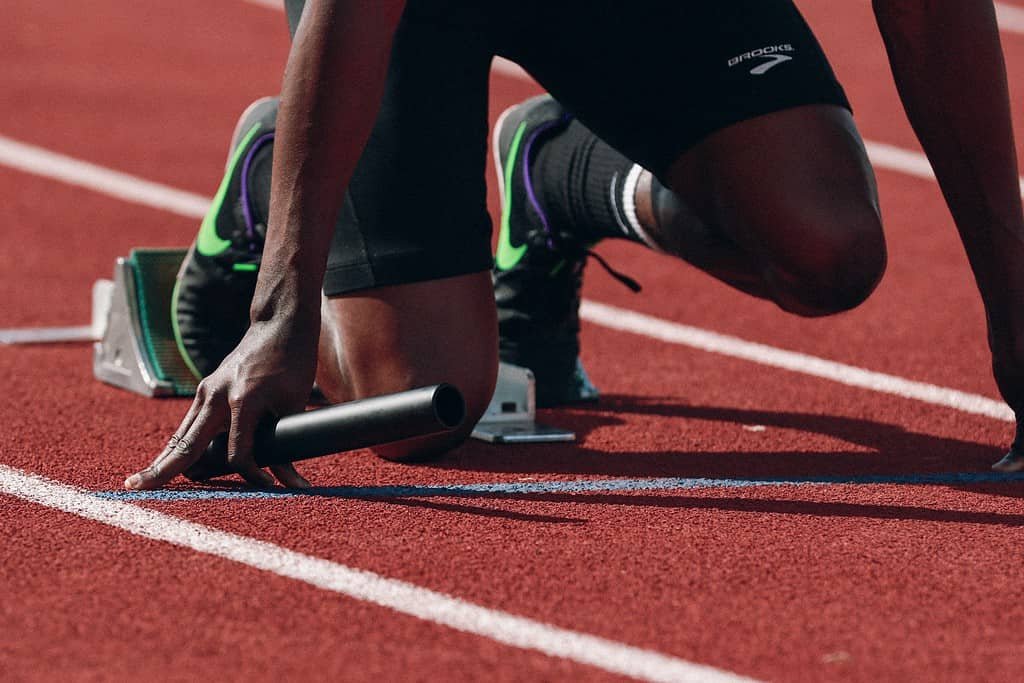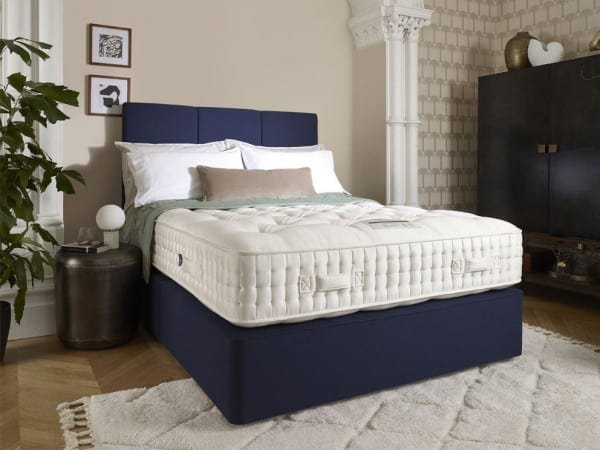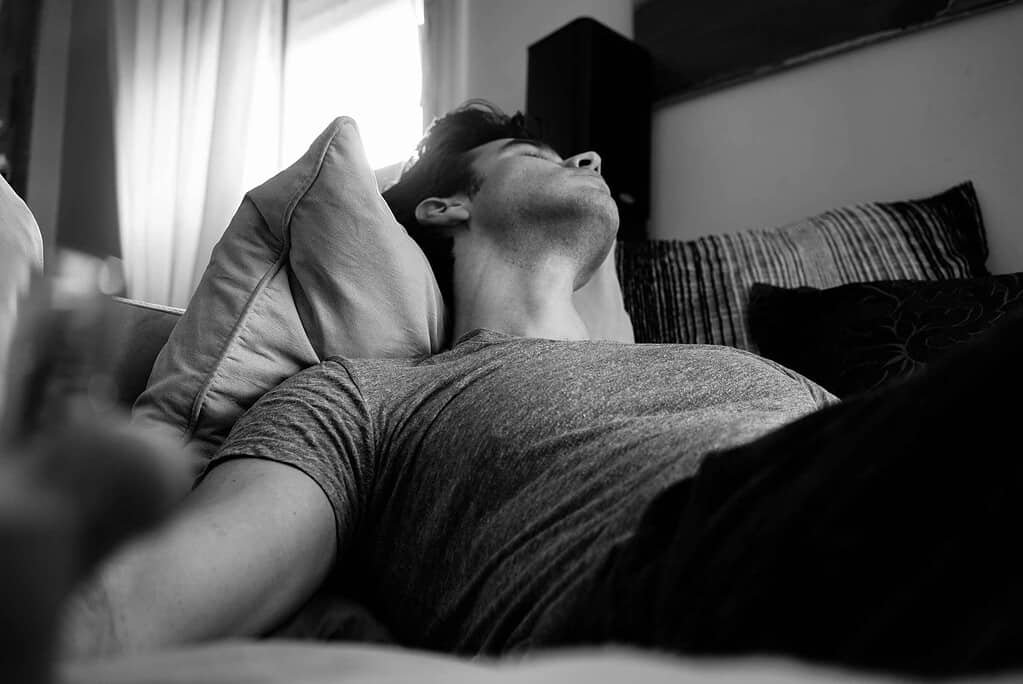Mattresses for Athletes: Boosting Rest and Results
Athletes require a good night’s sleep to ensure optimal recovery and performance. Choosing the best mattress is essential for athletes, as it facilitates better rest and helps prevent injuries. A mattress that offers the right balance of comfort, support, and temperature regulation is crucial for those who engage in sports and physical activities. In recent years, many mattress companies have designed products specifically for athletes. These mattresses focus on spinal alignment, pressure relief, and muscle recovery to promote refreshing and rejuvenating sleep. Selecting the ideal mattress tailored to an athlete’s needs can improve their health and performance.
Key Takeaways
- Quality sleep is essential for athletes’ recovery and performance.
- Understanding different mattress types is vital for choosing the perfect fit.
- Consider firmness, temperature regulation, and support when selecting a mattress.
Importance of Quality Sleep for Athletes
Impact on Athletic Performance – Quality sleep is essential for athletes to perform optimally during competitions and training sessions. Adequate rest allows the body to replenish its energy stores, helping athletes maintain endurance, strength, and agility. Additionally, sleep plays a crucial role in refining motor skills and muscle memory, which allows perfect technique and reduces the risk of injury. Poor sleep can negatively affect reaction times, decision-making, and overall mental and physical performance, hampering athletic success.
Relation to Muscle Recovery – Muscle recovery is a significant aspect of an athlete’s rest and recovery routine, and sleep significantly contributes to this process. During sleep, the body undergoes numerous repair and restoration processes, including protein synthesis, tissue growth, and the release of growth hormones. These functions are crucial for healing damaged muscles, building muscle mass, and reducing inflammation, leading to improved physical performance and a reduced risk of injury.
Role in Cognitive Functioning – Sleep is vital for physical recovery and performance and significantly impacts cognitive functioning. A healthy sleep schedule enhances focus, sharper decision-making, and emotional resilience. Moreover, adequate rest supports learning and memory consolidation, allowing athletes to better internalise and recall their training methods and strategies. In contrast, sleep deprivation can result in lapses in concentration, slower reaction times, and a weakened mental state, impairing athletic performance and overall well-being.
Understanding Mattress Types and their Features
Regarding mattresses for athletes, various types have unique features designed to enhance sleep quality and aid in recovery and performance. This section delves into three popular mattress types for athletes: Memory Foam, Latex, and Hybrid mattresses.
Memory Foam Mattresses
Memory foam mattresses are known for their contouring and pressure-relieving abilities. They are constructed with responsive, open-cell memory foam layers that conform to the sleeper’s body, providing targeted support and even weight distribution.
A memory foam mattress typically comprises a support core, a transitional layer, and a top comfort layer. The support core is often made of high-density foam, offering a sturdy base for the mattress. The transitional layer may vary in thickness and firmness and is designed to provide additional pressure relief and body contouring. The top comfort layer, made of a softer memory foam, contours to the body while providing optimal comfort.
Some benefits of memory foam mattresses for athletes include:
- Pressure Point Relief: Memory foam distributes body weight evenly to alleviate pressure points.
- Motion Isolation: These mattresses absorb movement, preventing disturbances for sleep partners.
- Customised Support: The responsive nature of memory foam adjusts to support different body types and sleeping positions.
Latex Mattresses
Latex mattresses offer a unique combination of support and pressure relief while highly responsive. These mattresses are constructed of natural or synthetic latex foam layers that provide a bouncy, supportive sleeping surface. Latex mattresses may have a single layer or a combination of various latex layers with different firmness levels. The support core is generally made of a denser latex material, providing stability and durability. A top comfort layer, often softer and more responsive, offers comfort and pressure relief.
Athletes may appreciate these advantages of latex mattresses:
- Supportive and Responsive: Latex mattresses offer a balanced feel, combining conformance with a responsive, bouncy surface.
- Pressure Relief: These mattresses evenly distribute body weight, reducing pressure points and aiding muscle recovery.
- Eco-Friendly: Natural latex mattresses are made of sustainable materials, offering an eco-conscious choice for athletes.
Hybrid Mattresses
Hybrid mattresses are popular among athletes due to their versatility and adaptability. They combine the best features of memory foam and latex mattresses with a supportive innerspring system. A hybrid mattress typically has a base of pocketed coils that provide structural support and minimise motion transfer. Above the coil system, transitional and comfort layers of latex, memory foam, and other pressure-relieving materials are added.
Benefits of hybrid mattresses for athletes include:
- Customisable Comfort: Hybrid mattresses offer varying degrees of firmness, support, and conformance, catering to individual sleep preferences.
- Balanced Feel: The combination of coil support, memory foam, and latex creates a comfortable, supportive sleep surface.
- Adaptability: Hybrid mattresses accommodate various body types and sleeping positions, ensuring proper spinal alignment and pressure relief. By understanding the features and benefits of memory foam, latex, and hybrid mattresses, athletes can decide which type will best enhance their recovery and performance during sleep.
The Influence of Mattress Firmness
Decoding Firmness Levels
Mattress firmness is crucial in determining the comfort and support a mattress can offer athletes. Firmness levels range from soft to extra firm, serving different purposes according to individual preferences and needs. A medium-firm mattress is typically recommended for most athletes, as it provides a balanced level of support and pressure relief, catering to various sleeping positions and body types.
Importance for Spinal Alignment
Proper spinal alignment is essential for athletes; it helps prevent back pain and enhances overall recovery. An adequate mattress firmness level assists in maintaining the natural curvature of the spine while sleeping, reducing the risk of misalignment and discomfort. A well-aligned spine allows athletes to wake refreshed and ready for optimal performance during training or competition.
Adjusting to Body Weight and Sleep Position
The ideal mattress firmness also depends on an individual’s body weight and preferred sleep position. For instance, stomach sleepers may require a firmer mattress to prevent their hips from sinking too deep into the surface, ensuring proper spinal alignment. On the other hand, lighter individuals might benefit from a softer mattress that offers enhanced pressure relief. Athletes must select a mattress with the appropriate firmness options, considering their unique profile to promote optimal sleep and recovery.
Importance of Temperature Regulation in Sleep
Proper temperature regulation during sleep is essential for a good night’s rest, especially for athletes focusing on recovery and performance. A comfortable sleeping environment can aid in falling asleep faster, enjoying deeper sleep, and feeling refreshed.
How Mattresses Aid in Cooling
Mattresses with cooling technologies can help maintain an optimal sleeping temperature by allowing heat to dissipate effectively. Various materials and design features contribute to this cooling effect:
- Cooling gels: These can be infused into the mattress materials, such as memory foam or latex, to help absorb and disperse body heat.
- Cooling foams: Some mattress foams are designed to have an open-cell structure, promoting better airflow and preventing heat retention.
- Cooling covers: Mattress covers made of breathable fabrics can work with other cooling technologies, allowing air to circulate more freely and wicking away moisture to keep sleepers cool and dry.
Foams and Other Cooling Technologies
Various mattress manufacturers utilise several types of foams and cooling technologies to help athletes achieve optimal sleep:
- Latex mattresses offer excellent breathability thanks to their naturally open and springy structure. They can effectively dissipate heat, making them popular for athletes seeking temperature regulation during sleep.
- Gel-infused memory foam: Memory foams infused with cooling gels combine the pressure-relief benefits of traditional memory foam while mitigating the heat retention commonly associated with this material.
- Phase change materials (PCMs): These materials can absorb, store, and release heat as required, functioning as a temperature control system within the mattress. This helps maintain a consistent temperature throughout the night.
The Role of a Mattress in Rest and Recovery
Providing Adequate Support
Mattress firmness is a critical factor in providing the necessary support for tired muscles and joints. Athletes require a mattress that balances comfort and pushback, helping maintain proper spinal alignment throughout the night. By distributing body weight evenly across the mattress’s surface, zoned support can help alleviate common discomforts such as aches and pains, allowing the athlete to experience deeper, more restorative sleep.
Enhancing Sleep Quality
In addition to support, mattress quality greatly influences sleep hygiene and the overall sleep environment. For athletes, achieving high-quality, restorative sleep is essential for muscle repair and recovery. A well-designed mattress, tailored to suit the individual’s needs, can provide this much-needed rest. A good mattress fosters a sleep environment that promotes relaxation and restoration by incorporating temperature regulation and ease of movement features.
Poor sleep quality can disrupt the body’s natural healing processes, thus hindering an athlete’s performance and recovery. Investing in a mattress that addresses the unique needs of athletes can improve sleep hygiene, create a conducive sleep environment, and ultimately support the process of muscle repair and recovery. The right mattress can be a significant factor in boosting an athlete’s overall performance and well-being.
Best Mattresses for Athletes
- Mammoth Sport Rise Plus Mattress – The Mammoth Sports Rise Plus Mattress is designed for athletes, providing targeted support and pressure relief for enhanced recovery. Its unique combination of Celliant technology and Medical Grade™ Foam stimulates blood flow, which aids in muscle recovery. The medium-soft (4) firmness ensures personalised comfort, enabling athletes to wake up feeling refreshed and rejuvenated.
- Origin Hybrid Pro Mattress – Origin Hybrid Pro Mattress offers a perfect balance of comfort and support tailored for athletic performance. With a trial length of 100 nights, athletes can test the mattress to ensure it meets their needs. Its innovative layer of CopperFlex promotes temperature regulation and antimicrobial properties, helping athletes maintain a healthy sleep environment. The mattress also features a firm (7) feel, providing ample support for proper spinal alignment during sleep.
- Ergoflex 5G Memory Foam Mattress – The Ergoflex 5G Memory Foam Mattress is well-suited for athletes due to its pressure-relieving properties and exceptional spinal support. The high-density memory foam contours the body, reducing pressure points and enabling a better night’s sleep. In addition, the Bear Elite Hybrid mattress utilises a proprietary blend of foams and pocketed coils for dynamic support. The Helix Midnight mattress, another popular option among athletes, offers a trial period of 100 nights and is backed by a 10-year warranty.
- Mammoth Prestige Pocket 2000 Mattress – The Mammoth Prestige Pocket 2000 Mattress offers optimal support and comfort for athletes who prefer a traditional pocket-sprung mattress. Its 2000 pocket springs adapt to body movements during sleep, providing targeted pressure relief. The unique incorporation of Medical Grade™ Foam and Far Infrared technology enhances circulation, aiding muscle recovery and overall well-being. With a generous sleep trial, lifetime warranty and free shipping, this mattress represents an excellent investment for those seeking quality sleep to support their athletic performance.
Frequently Asked Questions
Which mattresses help in faster muscle recovery?
Mattresses with pressure relief and proper spinal alignment can assist with muscle recovery. Hybrid mattresses, such as the Simba Hybrid (Amazon Link), combine the benefits of memory foam and innerspring coils and are a suitable choice for muscle recovery.
How does mattress firmness affect athletic performance?
Mattress firmness plays a vital role in providing support and comfort during sleep, which affects athletes’ performance. A firm mattress may provide better spinal alignment for athletes with back pain or heavier body types. On the other hand, a medium firmness level may suit side sleepers or those who prefer more pressure relief.
What are the top-rated mattresses for reducing back pain?
Like the Sleep Sanctuary Ortho 2000 Gel Memory Mattress, Mattresses that offer spinal alignment and pressure relief can help alleviate back pain. This specific mattress contains 2000 individual pocketed springs and pressure-relieving gel memory foam.
Do elite athletes use a specific type of mattress?
Elite athletes understand the importance of rest and recovery; hence, they may opt for mattresses designed to cater to their unique needs. Latex mattresses like Eco Terra’s Healthy Sleep model provide enhanced support, breathability, and pressure relief for improved recovery.
What factors should athletes consider when choosing a mattress?
Key factors an athlete should consider while selecting a mattress include support, firmness, bounce, motion transfer, temperature regulation, and durability. Personal preferences such as sleeping position and body type should also be considered.
Are there mattresses designed specifically for runners or bodybuilders?
While there may not be mattresses explicitly engineered for runners or bodybuilders, they can benefit from mattresses with features that improve athletic recovery. Look for options that provide optimal support, pressure relief, and breathability, depending on the individual’s requirements and preferences.



